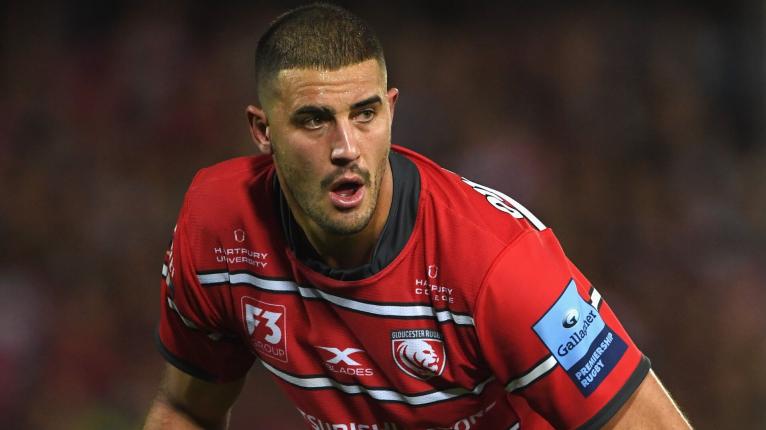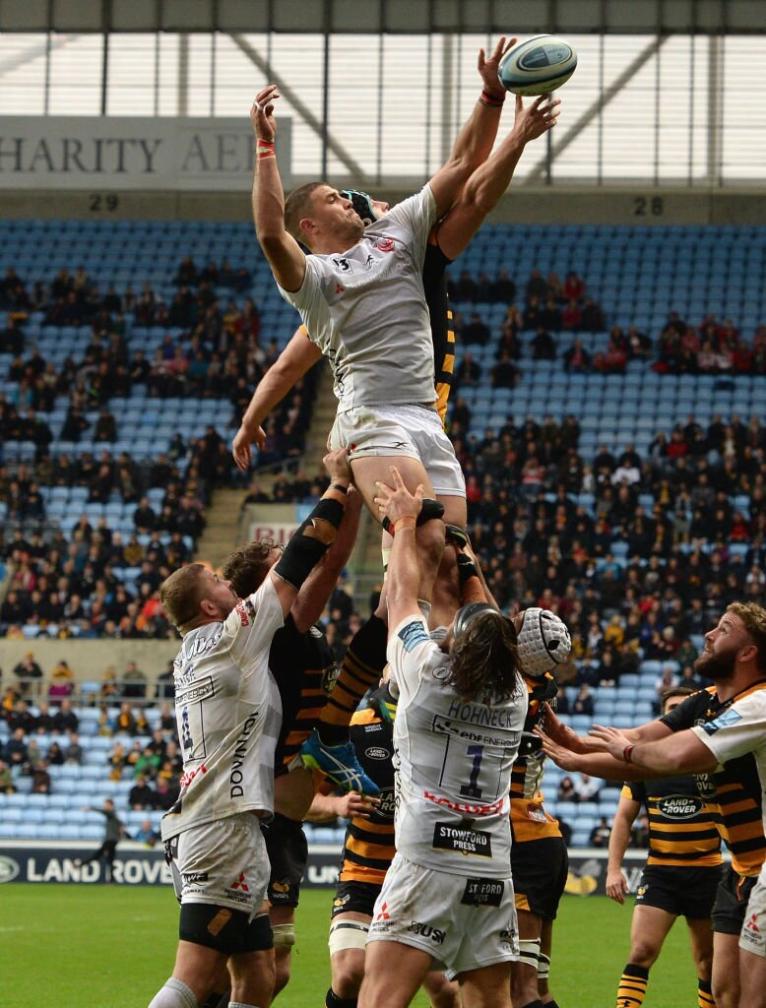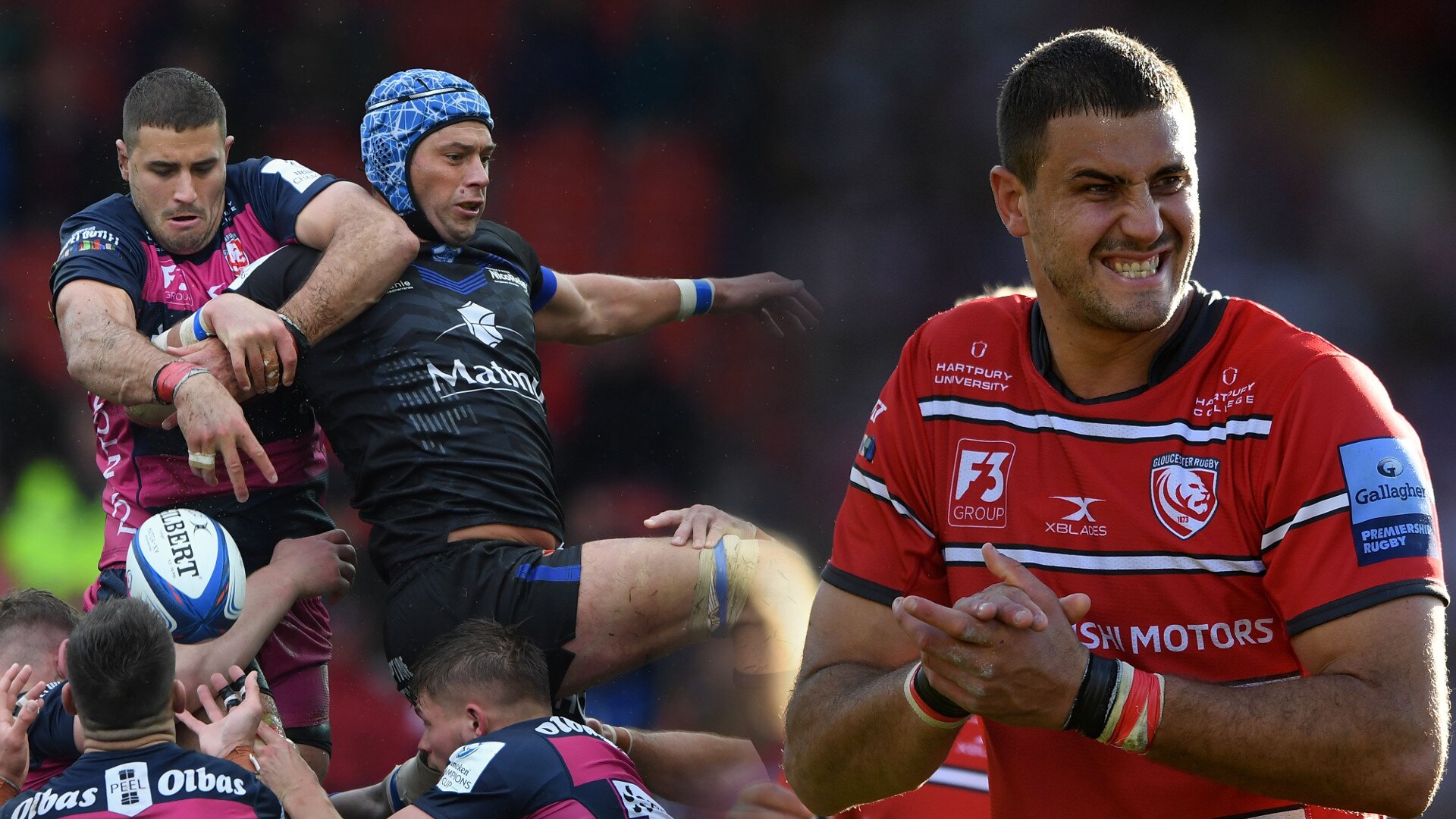How the Irish rumour mill inevitably followed Grobler to Gloucester

What is it about Gerbrandt Grobler and whispers? A UK newspaper interview last August resulted in him branding Ireland as ‘unfortunately a small place and a lot of people talk’. Five months later, tongues are apparently wagging in the latest small place to have given him employment.
Gloucester was supposed to be his place of refuge following the Irish media debacle that apparently cost him what he claimed was a three-year contract extension offer. Now there is small talk on the Kingsholm terraces that the South African hasn’t settled in the English south west and wants out. How curious.
It didn’t appear that way when he retweeted a December 1 Gloucester RFC picture of him smiling and standing shoulder to shoulder with Cherry and White supporters in the famed Shed while watching the derby win over Worcester.
A week later, those same followers were cheering Grobler to the hilt as led his team’s tackle count leader in their away ambush of Exeter in the Champions Cup. That, though, was as good as his December got.
A five-minute run off the bench was all he was given when Gloucester lost the return leg by a dozen points. He was then nowhere to be seen in the league outings either side of Christmas versus Newcastle and Sale, only returning to action last week at Leicester after Tom Savage was banned for a fortnight for dangerous rucking against the Sharks.
Local Gloucester media wanted answers for his exclusion, claiming there were rumours he had struggled to settle at the club since his switch from Ireland to England last summer. They got them.

Coach Johan Ackermann insisted there was nothing sinister going on, claiming Grobler’s absence was simply due to the lock losing out in selection to Ed Slater, Savage and recent arrival Franco Mosert.
‘Gerbrandt is great for the squad. He’s trained with a great attitude for the last couple of weeks regardless of whether he’s involved or not. In my view he’s happy here, he’s settled.
‘He’s settled in well. He’s obviously competitive so any player we don’t select on a weekly basis is in my office and they want to know when they can play. Nothing’s different with Gerbrandt. He’s an ambitious guy, he wants to play every week.’
He’ll get plenty game time Friday night after being chosen to start in the pack’s engine room against Munster, and when the Champions Cup dust settles over the weekend he can at least reflect that these latest headlines surrounding him are rather mild compared to a year ago.
The English media now following his career are never going to crusade against Grobler given how Gloucester’s coach is cut from the same cloth, someone who served a doping ban in his own playing days (Ackermann was banned for two years in 1997 for use of the prohibited anabolic steroid nandrolone. In sharp contrast, Grobler was at the heart of the belated firestorm last January that resulted in the IRFU’s zero tolerance policy on drugs in rugby going up in smoke.
The controversy should have ignited six months earlier when Munster first revealed they were signing for the 2017/18 season the convicted doper banned for two years for taking the prohibited anabolic steroid drostanolone while at the Stormers in South Africa. However, the announcement, made the day before the Lions played their series decider against New Zealand in Auckland, fell between the cracks and the issue was completely forgotten about when Grobler needed surgery following injury in a pre-season friendly. Only when he was declared fit did a full-blown quarrel break out.

It caught his employers on the hop and left them scrambling for answers to awkward questions they should have pre-rehearsed the previous summer when the South African’s signature was first secured. It was quite the sight watching Peter O’Mahony and Conor Murray fielding uncomfortable questions about Grobler in a week when their focus should have totally been on a Champions Cup assignment at Racing.
Quite the sight, too, to witness IRFU chief Philip Browne’s discomfort when the hot topic of Grobler’s employment in Irish rugby hijacked the media conference accompanying the announcement that Aviva was extending its naming rights deal at redeveloped Lansdowne Road.
Browne left the building that day suggesting changes would be afoot. ‘Will we consider how we’ll deal with a similar situation in the future? The answer is yes,’ he said, only to have those words rebuffed five months later by performance boss David Nucifora’s insistance that ’it wouldn’t be smart to put a stamp and say, “Anyone who has had a doping conviction cannot play rugby here”. That wouldn’t make any sense whatsoever.’
This open door stance jarred. This was the same IRFU that had regularly supported World Rugby’s ‘Keep Rugby Clean’ campaigns, getting its players to wear t-shirts promoting this slogan.
The same IRFU that only a couple of months previously acted decisively in tearing up the contracts of Paddy Jackson and Stuart Olding, despite the pair being exonerated in a court of law following a rape trial.
Nucifora’s admission went against the grain of the anti-performance enhancing drugs message that the IRFU percolates down all the way to grassroots to where the stars of tomorrow are dreaming of making it big.
Damaging drugs headlines are rare in Irish rugby. Two of the three players who failed a test in 1998 even had their anonymity protected. Only the name of Tom Tierney, found by an independent tribunal to have made a naive mistake worthy of only a reprimand and not a sanction, made it into the public domain.
Then came the 2003 appeal exoneration on a technicality of Frankie Sheahan. The asthmatic had been banned for two years for testing positive for excessive anabolic salbutamol levels following Munster’s European semi-final defeat to Toulouse.
Two years later, Ulster’s Rowan Frost was suspended for two months after cannabis traces were found in his system. Other than that, though, the trail had been cold in the pro ranks until Grobler unwittingly breezed into town, his signing very much out of kilter with the IRFU’s Spirit of Rugby campaign which this Sunday has a conference planned for Aviva Stadium that will be opened by Joe Schmidt.

Grobler’s stay was eventually short-lived, the Irish media’s frenzy resulting in him getting fed up of his grubby past being raked over. But this sudden backlash regarding doping in rugby had dark consequences other than the South African leaving Ireland.
By September there were whispers swirling around Murray’s absence from the rugby field. He had innocently kept precise details of a neck injury from the public, but the tactic backfired.
‘The toughest part of this was the outside rumours that my friends and family would hear,’ he said this week when delivering a motivational talk to the Irish Defence Forces which was reported by the Limerick Leader.
‘Crazy stuff that I’d failed all sorts of drugs tests and they were just keeping it under wraps and letting me serve my ban. That kind of hurt a little bit.’
Small place. A lot of people talking about doping in rugby, alleged or otherwise. It’s the Grobler legacy a year on from January 2018.

























































